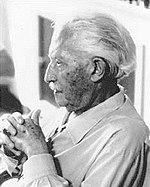
Erik Erikson
American German-born psychoanalyst & essayist
American economist (1930-2014)
Gary Stanley Beckerwas an American economist who received the 1992 Nobel Memorial Prize in Economic Sciences. He was a professor of economics and sociology at the University of Chicago, and was a leader of the third generation of the Chicago school of economics.
Table of Contents
Gary Stanley Beckerwas an American economist who received the 1992 Nobel Memorial Prize in Economic Sciences. He was a professor of economics and sociology at the University of Chicago, and was a leader of the third generation of the Chicago school of economics.
Becker was awarded the Nobel Memorial Prize in Economic Sciences in 1992 and received the United States Presidential Medal of Freedom in 2007. A 2011 survey of economics professors named Becker their favorite living economist over the age of 60, followed by Kenneth Arrow and Robert Solow. Economist Justin Wolfers called him “the most important social scientist in the past 50 years.”
Becker was one of the first economists to analyze topics that had been researched in sociology, including racial discrimination, crime, family organization, and rational addiction. He argued that many different types of human behavior can be seen as rational and utility-maximizing, including those that are often regarded as self-destructive or irrational. His approach also extended to altruistic aspects of human behavior, which he showed to sometimes have self-serving ends (when individuals’ utility is properly defined and measured, that is). He was also among the foremost exponents of the study of human capital. According to Milton Friedman, he was “the greatest social scientist who has lived and worked” in the second part of the twentieth century.
My work on human capital began with an effort to calculate both private and social rates of return to men, women, blacks, and other groups from investments in different levels of education.
American economist (1930-2014)
A stronger yuan could lead to greater Chinese asset accumulation in the U.S. and elsewhere.
American economist (1930-2014)
Why in almost all societies have married women specialized in bearing and rearing children and in certain agricultural activities, whereas married men have done most of the fighting and market work?
American economist (1930-2014)
Fines are preferable to imprisonment and other types of punishment because they are more efficient. With a fine, the punishment to offenders is also revenue to the State.
American economist (1930-2014)
Still, intuitive assumptions about behavior is only the starting point of systematic analysis, for alone they do not yield many interesting implications.
American economist (1930-2014)
The Treatise tries to analyze not only modern Western families, but also those in other cultures and the changes in family structure during the past several centuries.
American economist (1930-2014)
I was not sympathetic to the assumption that criminals had radically different motivations from everyone else.
American economist (1930-2014)